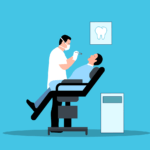
Maintaining your dog’s dental health is crucial for their overall well-being, and choosing the right foods can make a significant difference. Foods that support canine dental health often include specific nutrients that promote strong teeth and gums, while also preventing plaque buildup. For example, carrots and apples are excellent natural options that help clean your dog’s teeth as they chew. Additionally, specially-formulated dog foods designed for dental health can offer a balanced blend of essential nutrients. Always remember to consult your veterinarian before making any significant changes to your dog’s diet to ensure it meets their specific needs. Have you ever wondered about the best foods to support your dog’s dental health? Ensuring your furry friend has a healthy smile goes beyond regular brushing and dental cleanings. Just like in humans, diet plays a crucial role in maintaining good oral health in dogs. But what foods should you be feeding to keep those pearly whites sparkling and strong?

Understanding Canine Dental Health
To better grasp the importance of diet in dental health, you first need to understand the basics of canine dental health. Plaque and tartar buildup, gum disease, and tooth decay are common issues dogs face, similar to humans. Left untreated, these can lead to more serious health problems, including heart disease and kidney issues.
Why Dental Health is Critical
- Preventing Disease: Healthy teeth and gums prevent bacteria from entering the bloodstream, reducing the risk of systemic infections.
- Pain-Free Life: Dental problems can be extremely painful, impacting your dog’s quality of life.
- Nutrition Absorption: Gum disease and tooth decay can affect your dog’s ability to chew food properly, impacting nutrient absorption and overall health.
Key Foods for Maintaining Dental Health
Your dog’s diet plays a pivotal role in maintaining oral health. Here’s a breakdown of some essential foods and ingredients to include for optimal dental health:
Crunchy Vegetables and Fruits
Certain vegetables and fruits can help clean your dog’s teeth naturally due to their crunchy texture. Foods like apples, carrots, and celery can help scrape off plaque from their teeth.
Benefits:
- Natural Scrubbing: Crunchy textures help to mechanically clean teeth.
- Nutritional Value: Fruits and vegetables provide vitamins and antioxidants beneficial for overall health.
| Food | Benefits |
|---|---|
| Apples | Natural scrub, antioxidants, and vitamin C |
| Carrots | Mechanical cleaning, vitamin A and fiber |
| Celery | Natural floss, anti-inflammatory properties |
Dental Chews and Treats
Specially designed dental chews and treats can significantly reduce plaque and tartar buildup. These treats come in various shapes and textures to promote chewing and cleaning.
Benefits:
- Convenience: Easy to incorporate into your dog’s routine.
- Effectiveness: Scientifically designed to target oral health.
Raw Bones
Raw bones, particularly beef bones, are known to be effective in cleaning dogs’ teeth. They not only provide the mechanical action needed to clean teeth but also offer essential nutrients like calcium.
Benefits:
- Mechanical Action: Helps scrape plaque naturally.
- Nutritional Content: Rich in calcium and phosphorus, essential for dental health.
Kibble Over Wet Food
Dry kibble is generally better for your dog’s teeth than wet food. The crunchiness of kibble helps to reduce plaque buildup, while wet food can stick to teeth and gums, promoting bacteria growth.
Benefits:
- Texture: Helps scrub teeth as they chew.
- Preventing Stickiness: Less likely to stick to teeth than wet food.
Canine Wellness Supplements for Dental Health
Supplements can also play a significant role in maintaining your dog’s dental health. Several supplements are designed with ingredients that support oral health and reduce the risk of dental diseases.
Dental Care Chews and Treats
Dental care supplements often come in the form of chews that are enriched with ingredients like chlorophyll, parsley, and enzymes that support dental health.
Benefits:
- Chlorophyll: Helps with fresh breath.
- Enzymes: Aid in breaking down plaque.
Omega-3 Fatty Acids
Omega-3 fatty acids are beneficial for reducing inflammation, including gum inflammation. Fish oil supplements are an excellent source of Omega-3s.
Benefits:
- Anti-Inflammatory: Helps reduce gum inflammation.
- Overall Health: Supports heart and skin health.
Natural Remedies for Dog Dental Health
Natural remedies can be a good addition to a comprehensive dental care routine. These include herbs and other natural products known to benefit oral health.
Coconut Oil
Coconut oil has antimicrobial properties that can help reduce bacteria in your dog’s mouth. You can add a small amount to their food or use it to brush their teeth.
Benefits:
- Antimicrobial Properties: Helps reduce bacteria.
- Easy to Use: Can be added to food or used for brushing.
Parsley
Parsley is known for its breath-freshening properties. Adding a small amount to your dog’s food can help keep their breath fresh.
Benefits:
- Breath Freshening: Natural solution for bad breath.
- Nutrient-Rich: Provides essential vitamins and minerals.

Recognizing Signs of Dental Problems
It’s crucial to know the signs of dental problems in your dog so you can address them promptly. Symptoms such as bad breath, excessive drooling, and difficulty eating are indicators that your dog might need dental attention.
Common Symptoms
- Bad Breath: Persistent bad breath could indicate dental disease.
- Swollen Gums: Red, swollen gums are signs of gingivitis.
- Loose Teeth: Loose teeth can indicate advanced dental disease.
| Symptom | Possible Cause |
|---|---|
| Bad breath | Halitosis or gum disease |
| Swollen gums | Gingivitis |
| Loose teeth | Periodontal disease |
| Difficulty eating | Tooth pain or gum disease |
| Drooling | Oral discomfort or injury |
The Role of Regular Dental Cleanings
Regular dental cleanings by a veterinarian are vital for maintaining your dog’s oral health. While diet and supplements can help, professional cleanings ensure that any hidden or developing issues are addressed promptly.
How Often to Schedule Cleanings
Most veterinarians recommend dental cleanings at least once a year. However, the frequency may vary based on your dog’s breed, age, and dental health status.
Benefits:
- Thorough Cleaning: Professional tools and methods are more effective.
- Early Detection: Vets can detect issues before they become severe.

Consult Your Veterinarian
Before making significant changes to your dog’s diet or introducing new supplements, it’s essential to consult your veterinarian. They can provide personalized advice based on your dog’s specific health needs.
Customized Advice
Your vet can suggest the best foods and supplements tailored to your dog’s breed, age, and overall health. They can also guide you on proper dosages and usage instructions.
Benefits:
- Expert Recommendations: Based on professional knowledge.
- Personalized Care: Tailored to your dog’s needs.
Conclusion
Incorporating the right foods and supplements into your dog’s diet can significantly improve their dental health. From crunchy vegetables and dental chews to omega-3 supplements and natural remedies, there are various options to help maintain your dog’s oral well-being. Combine these dietary strategies with regular veterinary checkups to ensure your canine companion enjoys a healthy, happy life with a sparkling smile. So, the next time you wonder about foods that support your dog’s dental health, remember this guide and make more informed choices.
For a happy, healthy pup, start working on their dental health today!







